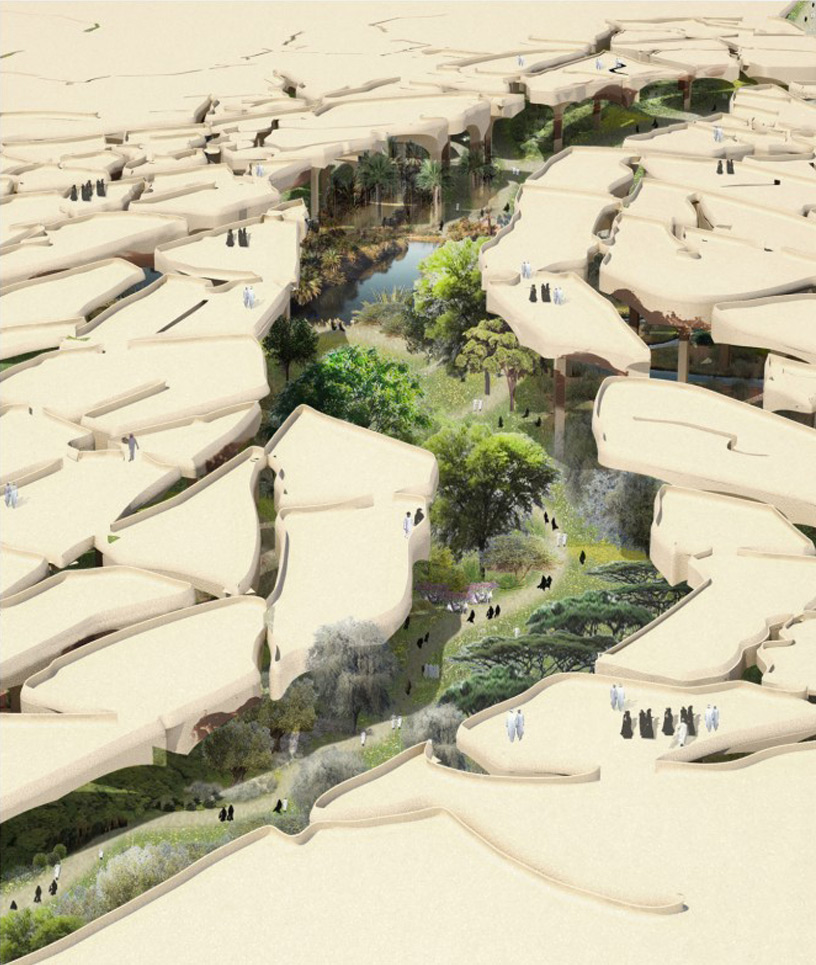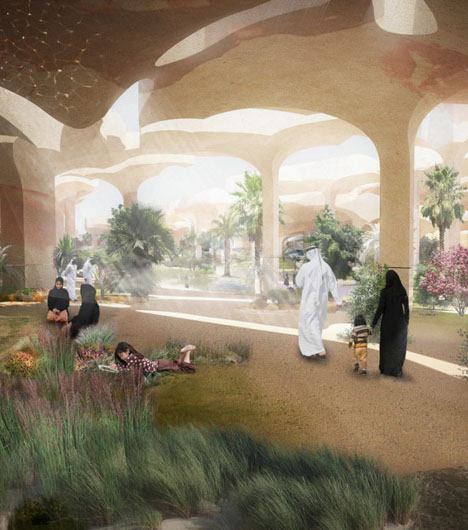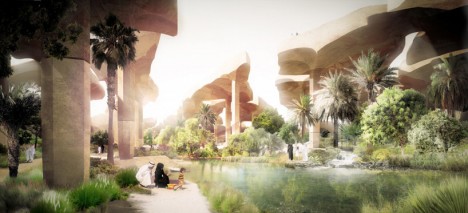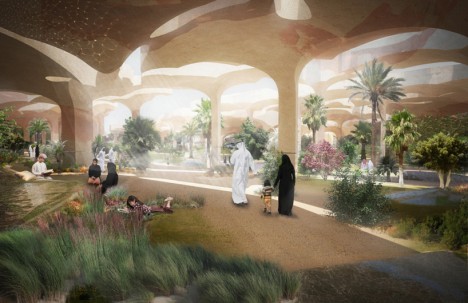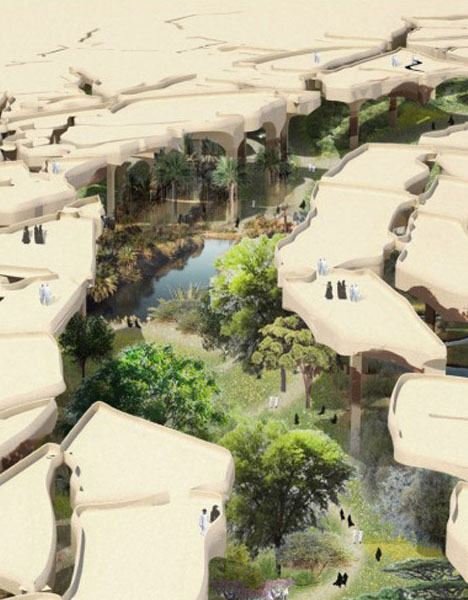Splitting at the seams like sections of sun-baked desert, this expansive park opens to the sky between a network of gaps and provides shade for people and plant life below. A sunken oasis designed by Thomas Heatherwick Studios, this massive Al Fayah Park will span over 1.3 million square feet and feature play and picnic areas, performance spaces and festival venues, vegetable gardens and native flowers amid rivers and other water features.
Anyone familiar with places like Black Rock City, Nevada will recognize the shape driving the design concept, but these are more than just an architect’s affectation. Beyond its naturalistic source of visual inspiration, the landscaping strategy speaks to climactic conditions in the United Arab Emirates – the sheltering dome of leaf-like decks keeps things cool below, but also helps prevent moisture loss.
From the designers: “By creating partial shade for plants, the canopy reduces the amount of water lost to evaporation, improving the park’s energy efficiency and sustainability. Whilst providing shade in the daytime, the elevated plates also become a network of unique meeting places in the cooler evening hours.”
‘This sunken oasis becomes a landscape of plants, mature trees and a cluster of public recreational spaces. The 20-metre-high shaded garden is conceived as a place for families to gather and picnic, as well as a place for learning and festivals.”
For those potential critics who still see the structure as somewhat too literal, it is worth noting the wide-ranging appeal of something so iconic to potential international tourists. Whether the shapes seem striking or trite to a given person’s tastes, part of the purpose of the design is to be recognizable and ultimately draw in visitors from around the world. One question still worth raising, though, might be its fit in the site context – will it blend into the surrounding ground or stand out in the city?
